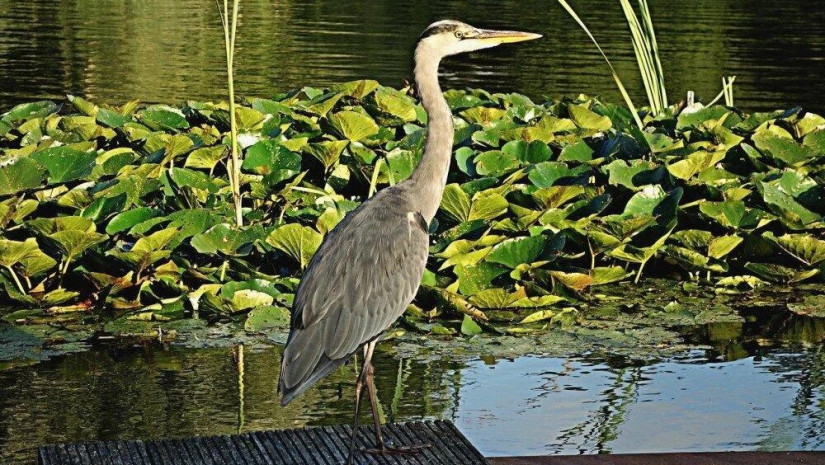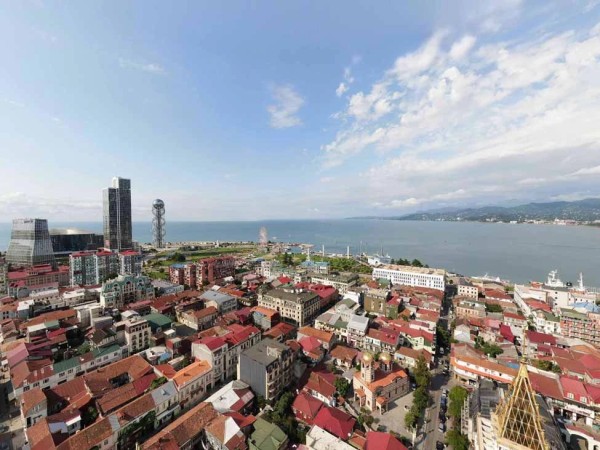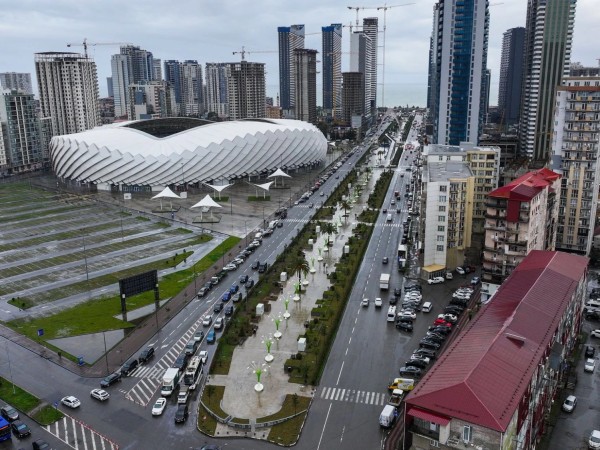The Chorokhi Delta, nestled between the Batumi airport and the resort village of Gonio on the Black Sea, is a hotspot for migratory birds, a quiet piece of shoreline, a place for cows to graze, and a key element of Prime Minister Irakli Garibashvili’s plan to turn Georgia into a financial hub, the “Luxembourg of the East.”
One side of the river is a former Russian weapons testing ground; the other is a contemporary landfill. Between the trash and leftover munitions, the fields and shores of the delta have basically been left for the birds since the last Russian soldiers vacated the area in 2007. It’s one of Georgia’s best spots for birding, featuring rare species like the black-winged pratincole and the critically endangered sociable lapwing.
Zura Gurgenidze, a conservation officer with SABUKO, the local partner of Birdlife International, describes the Chorokhi Delta as “one of the most important parts of [Georgia’s] Black Sea coast.”
For many years, the biggest threat to the delta was illegal hunting; today it is development.
Since at least 2010, authorities have planned to extend the Batumi Boulevard – a pedestrian promenade lined with resorts, casinos and modern kitsch – in this direction. While those plans have not yet materialized, Garibashvili has in recent months sought to attract foreign investors to this stretch of coastline.
There is, however, a snag in his plan: The Chorokhi Delta is part of the Council of Europe's Emerald Network of Areas of Special Conservation Interest protected by the Bern Convention, which Georgia signed in 2009. Under this agreement, the national government in Tbilisi is responsible for ensuring any development there conserves habitats, particularly for migrating birds, and minimizes harm to wildlife. The convention also prohibits “the deliberate damage to or destruction of breeding or resting sites” of certain wild fauna, including 139 bird species that have been reported in the delta.
EU accession had been progressing slowly since Georgia signed an Association Agreement in 2014, but the Russian invasion of Ukraine this spring sped up the timeline. Georgia formally applied to join on March 3. The agreement, which lays the foundations for EU integration, is specific about Georgia’s environmental obligations, mentioning the Emerald Network and declaring that Tbilisi is “committed to respecting the principles of sustainable development, to protecting the environment […] including […] implementation of multilateral international agreements.”
A comprehensive law on biological diversity that would more strongly protect Emerald Network sites is on parliament’s agenda to consider before the end of June.
“Because of this accelerated accession process, now the EU is demanding that this biodiversity law be put in place as soon as possible,” said Christian Gönner of the German development agency, GIZ, who has worked with the government on the Emerald Network since 2013.
Without a national law, there is no enforcement mechanism to discourage developers, added Gönner, an avid birder and volunteer for eBird, an online database. He points out, however, that the government could overcome Emerald Network restrictions by arguing that construction is in the national interest.
Garibashvili has hired financial services giant Rothschild & Co to oversee development of the financial hub, meeting with Managing Director Arielle Malard de Rothschild at least six times over the past year and promising on April 20 to implement the project “in the most efficient and effective manner.” A spokesperson for Rothschild & Co did not address questions about how the Bern Convention could impact the work.
Garibashvili’s office, the Ministry of Economy and Sustainable Development, and the Adjara region’s tourism department did not respond to Eurasianet’s requests for comment. A spokesperson for the Ministry of Environmental Protection and Agriculture said the ministry could not comment as the delta development project has not yet been submitted for consideration.
Yet Tamar Diasamidze of Adjara’s finance and economy ministry told Eurasianet her office is finalizing an agreement with the Asian Development Bank to fund the boulevard extension, including a bridge over the Chorokhi. The ADB is a key investor in another controversial project, the Nenskra hydropower dam, that resulted in an Emerald candidate site dramatically shrinking.
The last public proposal for the delta development, dated 2014, said 30 percent of the Gonio side of the delta would remain an “untouched” recreational and birdwatching zone. Gurgenidze of SABUKO says this is insufficient, as it would leave the bird population too little of a buffer.
Death by a thousand cuts
One recent afternoon a group of fishermen drove to the beach at Chorokhi to set their lines. Davit Tavartkiladze, who has been fishing at the delta for a decade, dismissed Garibashvili’s plans: “Build the casinos at his house,” he said. “Batumi is full of casinos.”
“It’s the birds’ place,” said another fisherman. “They’re out of harm’s way here, and if their nests are destroyed, where will they go?”
While the fishermen, birders, and environmentalists interviewed for this story all spoke against the development, most were also skeptical that anything would come of the plans, pointing to past efforts that have not borne fruit.
Still, Aslan Bolqvadze of the Batumi Botanical Garden says the delta and unique plant ecosystems, including fragments of Colchian forest, is already under attack. On a visit in April he was surprised by the amount of human activity already apparent – excavators, trees being felled, and two gravel and sand mining pits.
“So maybe they won’t manage to build a bridge over the Chorokhi Delta, won’t manage to build huge casinos and buildings and hotels around the delta. But they’re building small commercial factories and mining, which is […] exactly as harmful as the big project. They are going to keep destroying the Chorokhi Delta, little by little.”
At the same time, Gönner of GIZ worries that the sudden influx of tens of thousands of Russians and Ukrainians as a result of the war, and the accompanying rise in local apartment prices, will leave investors hungry to build more housing in the area.
Without a concerted protection effort, the delta is in danger, he said: “When you’re so close to a large tourism destination, like in our case Batumi, it’s probably a never-ending fight for conservation.”
Source: eurasianet















